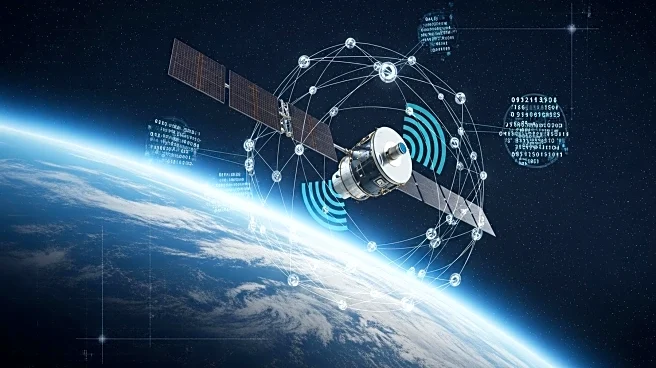What is the story about?
What's Happening?
Russia's use of GPS jamming and spoofing in Europe has escalated from a covert tactic to a significant threat with economic and security implications. Between 2024 and 2025, incidents such as the disruption of a flight carrying European Commission President Ursula von der Leyen over Bulgaria and a prolonged GPS signal attack affecting 1,600 aircraft highlight the urgency of addressing this vulnerability. These disruptions, often traced to mobile jammers in Kaliningrad or vessels in international waters, have forced airlines to reroute flights, increased fuel costs, and exposed critical gaps in global navigation satellite system (GNSS) resilience. In response, the European Union is aggressively securing its Galileo constellation and modernizing defense infrastructure, creating a surge in demand for anti-jamming technologies and resilient navigation systems.
Why It's Important?
The escalation of GPS jamming by Russia poses a significant threat to European air and maritime traffic, impacting both economic and security sectors. The EU's response, including the launch of the Galileo Open Service Navigation Message Authentication (OSNMA) and calls for resilient Positioning, Navigation, and Timing (PNT) systems, underscores the strategic importance of securing navigation infrastructure. This situation presents opportunities for companies developing anti-jamming and spoofing solutions, as well as those involved in satellite navigation upgrades. The EU's push for strategic autonomy and local sourcing in defense procurement is reshaping the market, potentially excluding non-European firms from lucrative contracts. The integration of AI into anti-jamming systems also raises ethical and regulatory questions.
What's Next?
The EU's initiatives, such as the Galileo upgrades and the Security Action for Europe (SAFE) initiative, are expected to drive further investment in resilient navigation technologies and defense modernization. The next 12-24 months may see a consolidation of market leaders and a surge in R&D partnerships. However, investors must navigate geopolitical and technical risks, including the rapid evolution of Russian spoofing techniques and the EU's emphasis on local sourcing. The integration of AI into anti-jamming systems will also require careful consideration of ethical and regulatory implications.
Beyond the Headlines
The geopolitical tensions highlighted by Russia's GPS jamming activities have broader implications for international relations and defense strategies. The EU's response reflects a shift towards greater strategic autonomy and resilience in critical infrastructure. This situation also highlights the importance of technological innovation in addressing emerging security threats. The ethical and regulatory challenges associated with AI integration in defense systems will require ongoing dialogue and collaboration among stakeholders.















